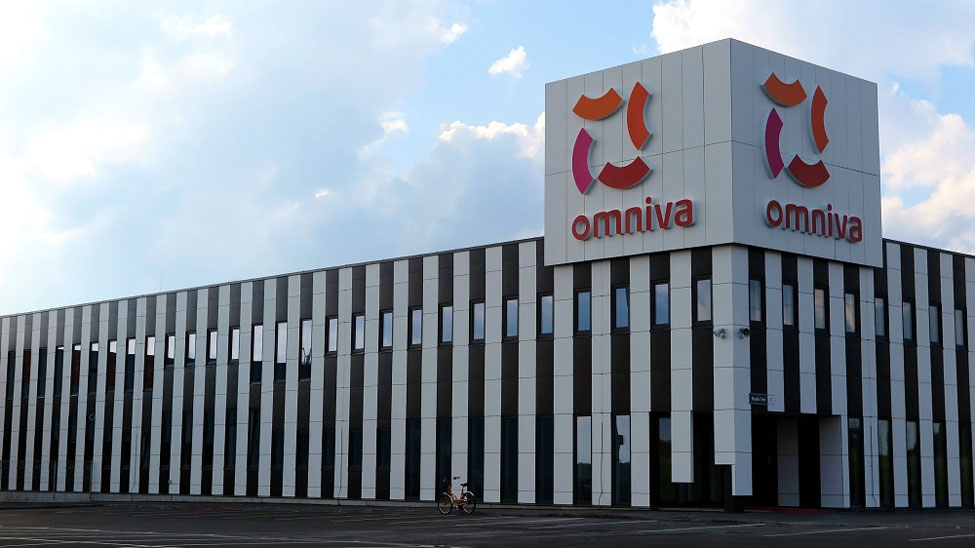
Omniva: The company’s long-term strategy is working

The first six months of 2020 were the most successful of the past five years for Omniva – compared with the same period in 2016, group’s operating revenue has increased by more than half (+52%) and profit has doubled (+119%).
The operating revenue of the Omniva group over six months was 63.8 million euros in total (61.0 million euros in the same period in 2019, showing an increase of 4.6%). Operating revenue growth is especially noteworthy: in 6 months, the group earned 1709 thousand euros of operating revenue (2019: loss of 8 thousand euros).
According to chairman of Omniva management board Ansi Arumeel, the first half of 2020 was extraordinarily influenced by the spread of the coronavirus COVID-19 throughout the world, but the impact of the planned long-term activities and cost cuts in the first quarter of 2020 also have a role in the results.
“The company’s long-term strategy is working,” Arumeel noted, “and the investments made in recent years have been justified. The parcel machine network covering the Baltic states, rapidly growing Latvian and Lithuanian business units, a new logistics information system and new logistics centres have ensured the company’s capability both in the face of soaring volumes during the state of emergency and in the longer perspective.”
Thanks to the quickly applied measures, the operation of the postal and parcel service was ensured during the state of emergency. “Amending work organisation to protect clients and employees and ensuring the availability of personal protective equipment formed the basis for sustainable service provision and coping with the sudden increase in volumes,” Arumeel said.
Parcel business: surging national parcel volumes compensated for stalled international shipments
Transportation disruptions due to COVID-19 and other restrictions caused the volume of international parcels to fall compared with the same period last year, but this was compensated by the explosive growth of national e-commerce throughout the Baltic states. The volumes of incoming international parcels began to recover towards the end of the second quarter.
The state of emergency also changed the consumer habits: due to the closure of post offices located in shopping centres, the shipment numbers in the postal network decreased, but at the same time, the use of parcel machines as the outdoor contactless option increased.
The six-month turnover of the Baltic parcel business accounted for a record 49% of the group’s turnover in the first half of 2020 (37% in the same period in 2019). The Latvian and Lithuanian subsidiaries grew at a particularly rapid rate; their six-month turnover formed 21% of the group’s turnover (12% in the same period in 2019).
“Expanding to Latvia and Lithuania has been the right decision,” Arumeel said, “it has also brought the parcel business several major international clients, the latest being Asos and About You, who view the Baltic states as a single market.”
To handle the rapidly increasing volumes in the Baltics, the company launched a new sorting centre in Latvia in June, which will be officially opened at the end of July.
Postal business: provision of services in state of emergency and restoration of direct mail volumes
The state of emergency also impacted the postal business services. “One top priority,” Arumeel highlighted, “was ensuring in collaboration with the National Social Insurance Board and the Unemployment Insurance Fund that pensions and benefits are delivered safely to clients, the majority of whom are in the risk group.”
Direct mail income reduced the most due to the state of emergency (merchants who were unable to make campaigns did not order direct mail either), but following the end of the state of emergency, the direct mail volumes are recovering.
“Universal postal service volumes are in decline,” Arumeel said, “but the service continues to be important for the people of Estonia and it is the duty of Eesti Post to ensure the availability of this service across Estonia. The company faces the challenge of finding the best model in cooperation with the state to provide a modern postal service that meets the needs of the clients.”
From 31 May 2020, the universal postal service prices changed and two services with different delivery speeds became available for sending national letters (letter and express letter). Since the international fees also depend on the national prices, the price change makes it possible to request a fairer fee from other postal companies for shipments arriving to Estonia from 2021 and thus reduce the loss of the service.
International business was impacted by the slow in international trade due to the corona pandemic and the infrequency of flight connections. We also continued restructuring the business with the aim of increasing the profitability of the business domain.
In information business, the first six months were more stable compared with other business domains. Use of the service remained stable, but with companies moving their operations to home offices, increased interest in switching to e-invoicing was visible. The number of Invoice Centre users increased by nearly 7% compared with the first quarter.
The group operating costs were 62.1 million euros in the first six months of 2020 (61 million euros in the same period in 2019).
“Although the state of emergency brought about significant unplanned costs,” Arumeel said, “such as the establishment of temporary parcel issuing points instead of the post offices located in the closed shopping centres and with the provision of personal protective equipment to employees, the efficiency measures and savings plans implemented in the company before the corona crisis had a positive impact.
Investments declined by almost half compared with the same period last year. Following the active investment cycle of 2016-2019 (establishing the logistics centre, the new logistics information system, the rapid growth of the parcel machine network), the company has restored the normal volume of investments. The largest investments were made in IT development, parcel machines and advertisement assembly machines.
AS Eesti Post, which uses the Omniva brand, is a state-owned company that belongs under the domain of the Ministry of Economic Affairs and Communication. The company provides postal business, parcel business, information business and international business services. In addition to parent company AS Eesti Post, the group includes AS Maksekeskus, OÜ Omniva, Lithuanian subsidiary UAB Omniva LT, Latvian subsidiary SIA Omniva and related company OÜ Post11.













